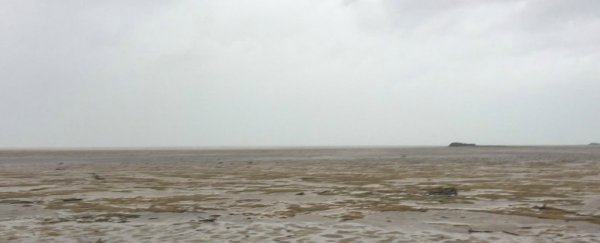As a meteorologist, there are things you learn in textbooks that you may never see in person. You know they happen theoretically, but the chances of seeing the most extraordinary weather phenomena are slim to none.
This is one of those things - a hurricane strong enough to change the shape of an ocean.
Twitter user @Kaydi_K shared a video Saturday afternoon that quickly went viral. I knew right away that even though it seemed impossible, it was absolutely legit.
"I am in disbelief right now…" she wrote. "This is Long Island, Bahamas and the ocean water is missing!!!"
Hurricane Irma's winds are so strong, it's pulling water away from the shoreline. It happened in the Bahamas on Friday and Saturday, and now it's happening on the Gulf Coast of Florida on Sunday.
#Tampa bay now an effective dog park as we wait for #irma. With @CityofTampa parks closed ahead of storm, this is the best we've got. pic.twitter.com/Op3FADmL3V
— Tim Scheu (@scheuster) September 10, 2017
On Saturday, the wind on Long Island in the Bahamas was blowing from southeast to northwest. So on the northwest side of the island, water was getting pushed away from the shoreline.
On the Gulf Coast of Florida, winds were out of the east on Sunday, which pushed water west and away from the coast.
Sea gone dry 😶 #HurricaneIrma #Bahamas @weatherchannel pic.twitter.com/zBLQn7ym2F
— Adrian (@deejayeasya) September 9, 2017
At the same time, some locations may be experiencing the effects of the hurricane "bulge." In the center of the storm, where the pressure is lowest and the winds are converging, water piles up.
Low pressure is basically a sucking mechanism in the sense that it draws the air inward. When the pressure is exceptionally low and the winds are very strong, it can create a bulge of ocean water under the center of the storm.
In any case, the missing water isn't the sign of a tsunami. The water returned to Long Island on Saturday. On the Florida Gulf Coast, it will be back after the centre of the storm passes north of the location.
The best advice is to not venture out onto the dry seabed. You don't want to be there when the water returns.
2017 © The Washington Post
This article was originally published by The Washington Post.
